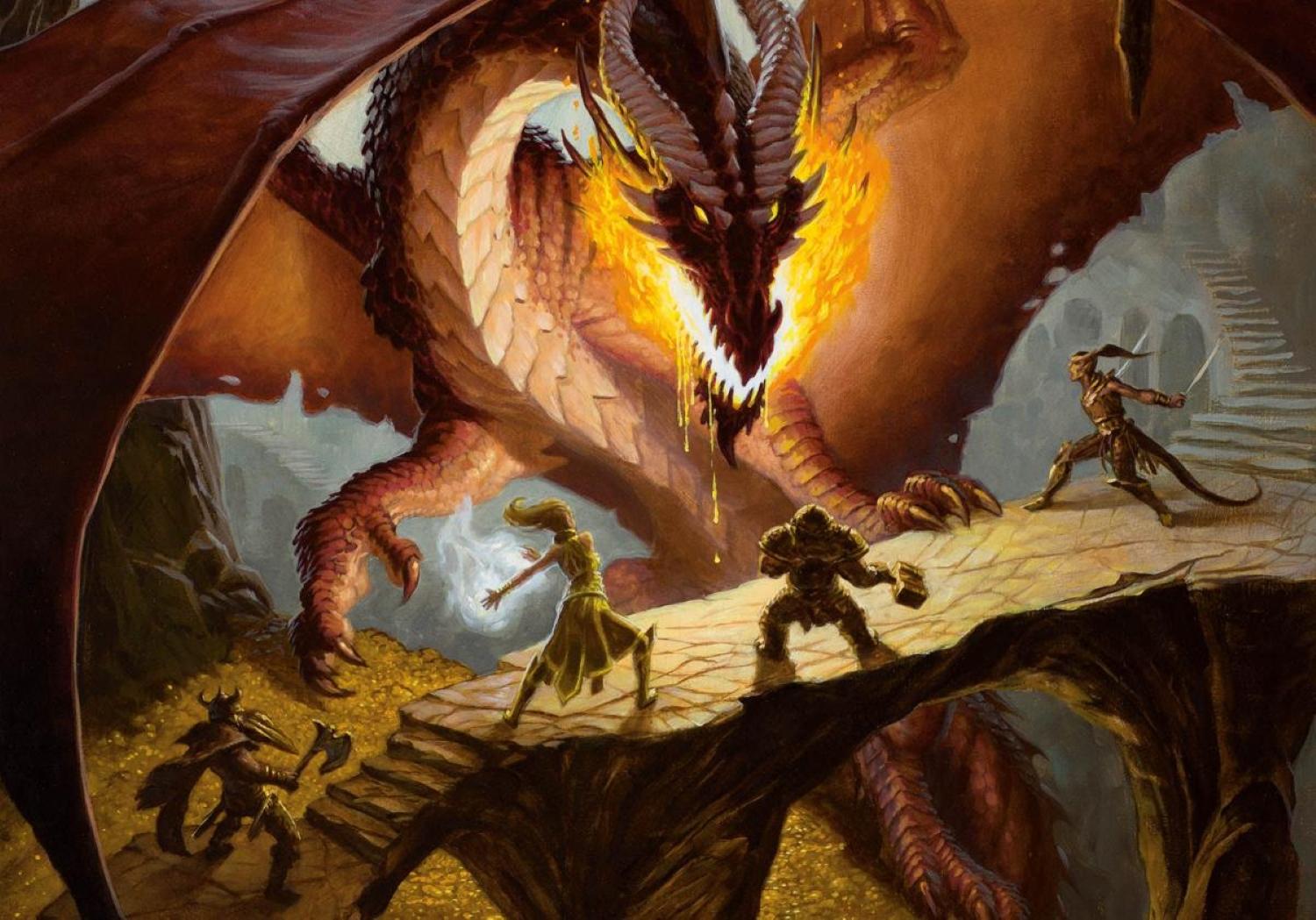Players roll the dice on the healing power of collaborative fantasy
At the D&D table, says CU Boulder humanities scholar and gaming podcast host Andrew Gilbert, everyone has a voice
You can often find Andrew Gilbert behind a cardboard dungeon master’s screen, scheming up new ways to derail the carefully laid plans of the other players at his Dungeons & Dragons table. The game has been part of his life for decades, and as D&D gains a larger foothold in the mainstream, it has also become a powerful avenue for friends to connect, laugh and heal.
“It’s such a fascinating way to connect people through story. But it’s a story with limitations and rules,” says Gilbert, a teaching assistant professor of humanities, game studies and media at the University of Colorado Boulder Department of Cinema Studies and Moving Image Arts.
In September, Wizards of the Coast studios released Heroes of the Borderlands, the game’s most expansive beginner-friendly box set yet. It arrives with the goal of helping a new generation of players roll their first d20s.

Andrew Gilbert is a CU Boulder teaching assistant professor of humanities, game studies and media in the Department of Cinema Studies and Moving Image Arts.
Gilbert and a group of friends have been doing so together since 2018, broadcasting play sessions from their campaigns online via the Goats & Dragons and Helpful Goat Presents podcasts.
“When we created the show, we knew we wanted to play games in a way that centered player experiences and collaborative storytelling,” he says.
The group’s campaign is now approaching the end of a years-long adventure, which has included guests like The Lord of the Rings actor Dominic Monaghan along the way.
The hobby has brought them closer together and created no shortage of memorable moments. But that’s just one facet of Gilbert’s connection to Dungeons & Dragons.
After years of rolling dice and telling stories, he’s come to see the game as something far bigger than fantasy. But why does D&D, a game first published in the 1970s, still captivate us today? How can a tabletop game rooted in imagination compete with video games, AI content, and near-constant digital simulation?
Gilbert has a few ideas.
Still captivating after 50 years
At its heart, D&D is a storytelling engine. Unlike books or movies with fixed narratives, tabletop roleplaying games ask players to improvise solutions, make moral decisions, and stay in character. Players sit around a table (or communicate virtually) and collaborate to tell a story where no one knows how it will end.
“It’s a fascinating form of media where, to a certain extent, the audience are the creators of the media at the same time,” he says. “There’s something wild and magical and fun about giving up control of a story to the group and to chance itself with die rolls.”
Gilbert first encountered D&D through a cousin who taught him to play when he was just 7 years old.
“I was hooked right away,” he recalls.
Years later, as both a scholar of games and a long-time player, Gilbert is fascinated by the emotional and social experiences D&D fosters. No longer seen as just an escapist fantasy game, D&D has become a catalyst for community building.
“There are social and emotional dynamics happening in every game,” he says.

That community is what makes Dungeons & Dragons so special, says CU Boulder scholar Andrew Gilbert; whether players are battling monsters in an imagined fantasy world or conquering their own internal demons, the table becomes a shared space where anything can happen. (Illustration: Wizards of the Coast)
At the same time, D&D is incredibly accessible for newcomers. Today, with an updated rule set and a plethora of digital tools to simplify the experience, that’s truer than ever, Gilbert says.
“Literally, you can know nothing about Dungeons & Dragons, and I can teach you how to play by just doing it. All you have to do is tell me what your character wants to do, and then someone who knows the rules can say, ‘Great, roll this dice, add this number to it.’ You really don’t even need to know the rules before you start playing,” he says.
He believes that’s a big reason why the game has endured for half a century and is still growing.
“A lot of us were worried the growth we saw in 2015 and 2016 was a fad that would sort of fade. But then we got the pandemic, and a lot of people started playing as a way to connect with friends when there was nothing to do but play games at home. And, of course, you have a ton of content creators making content about the game professionally,” he says.
“It’s just a perfect storm of factors that have shot the popularity of D&D through the roof.”
Healing through character
Sometimes, though, the game is about more than enjoyment or even storytelling. For many, D&D and games like it have become tools for healing from past traumas or building crucial social skills in a safe environment, Gilbert says.
“There are so many stories about people using the game to work through trauma, including some really cool research about games and PTSD specifically. You can just not be you for a little bit,” he says. “I’m not always a proponent of pure escapism, but it releases a tension. Whether you’re remembering your character doing something or remembering something that actually happened, your brain goes through the exact same process.”
He adds, “With D&D, you can create all these beneficial, healthy memories of not being the victim of some trauma but the one who solves the problem.”
"There’s so much good. The act of collaboration, of creation, of working through issues in the game. It’s something we talk about in my class a lot. These things are hard to navigate, but it’s incredibly helpful to learn how to navigate them."
Gilbert also acknowledges how roleplaying games like Dungeons & Dragons can be deeply meaningful to people who don’t always find social interaction intuitive.
“The idea of how to just construct scenes and conversations is really, really helpful for individuals on the autism spectrum,” he says.
Part of that comes from the game’s structure. Unlike everyday conversation, which can be unpredictable and overwhelming, D&D provides a clear set of rules and roles.
“There’s an element of learning how to pass the microphone, which on a very basic level is just good practice for conversation,” Gilbert says.
Indeed, research suggests that D&D and similar games can be used therapeutically to build communication skills, reduce stress, and foster a sense of community among people who may struggle to connect.
That community, Gilbert says, is what makes the game so special. Whether players are battling monsters in an imagined fantasy world or conquering their own internal demons, the table becomes a shared space where anything can happen.
“There’s so much good. The act of collaboration, of creation, of working through issues in the game. It’s something we talk about in my class a lot. These things are hard to navigate, but it’s incredibly helpful to learn how to navigate them,” he says.
As new players crack open Heroes of the Borderlands or learn the game from a friend, they become part of a decades-long tradition that values creativity and connection in a world that is too often devoid of these qualities, Gilbert says, adding, “We keep finding new amazing things about this game, and it’s only getting better. The possibilities are just limitless.”
Did you enjoy this article? Subscribe to our newsletter. Passionate about cinema studies and moving image arts? Show your support.

